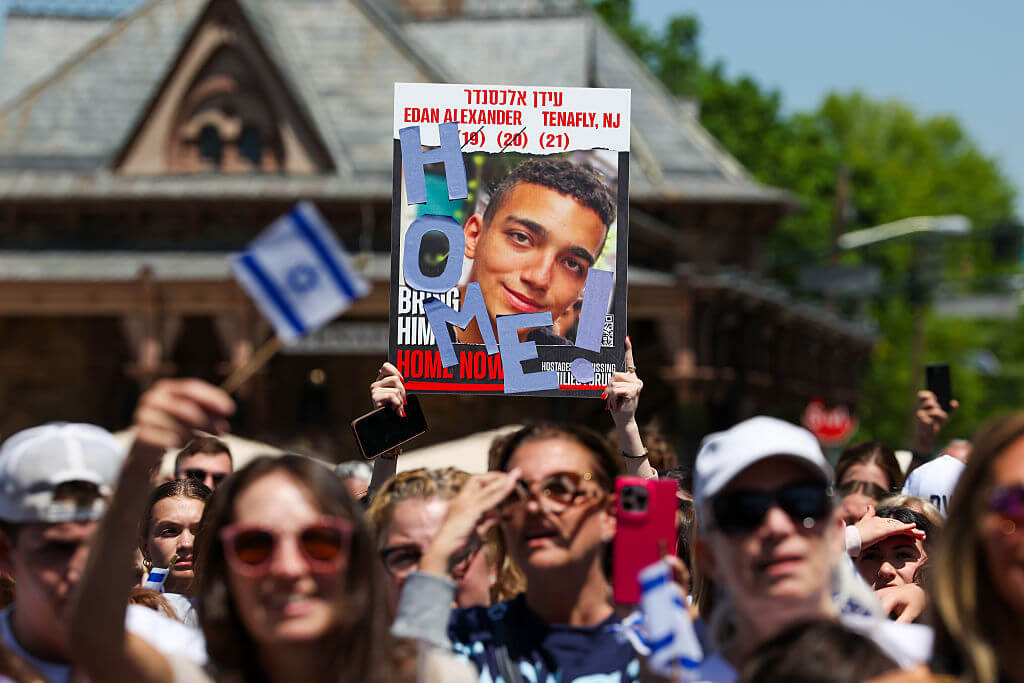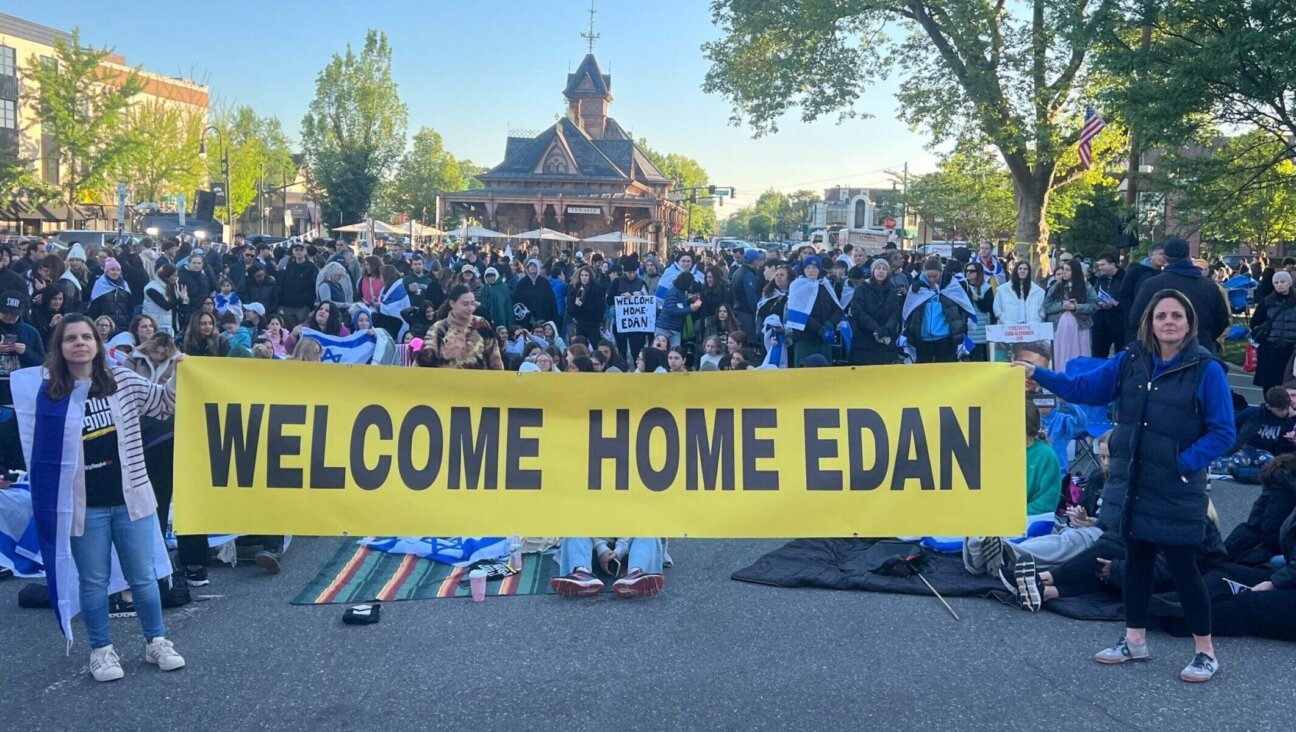Claims Conference Wins Major Boost in Aid to Holocaust Survivors

Image by getty images
The Claims Conference, which manages aid to Holocaust survivors, has negotiated a budget increase through 2018, including the largest one-time increase in homecare funding the organization has ever secured.
In talks with the German government, the Claims Conference secured nearly $312 million in homecare funding for survivors in 2016, approximately $350 million for 2017 and more than $380 million for 2018, according to a Tuesday press release. The additional funding for homecare totals some $500 million from the German government.
The most significant part of the agreement, according to Claims Conference Executive Vice President Greg Schneider, is that it removes the cap on the number of homecare hours many survivors can receive. Previously, survivors were entitled to a maximum of 25 hours per week of homecare. Now, survivors of ghettos and concentration camps may receive unlimited homecare. Other survivors may receive a maximum of 40 hours per week.
“Homecare is a key component of providing a dignified life to Holocaust survivors,” Schneider told JTA. “By waiving a cap for people who were in camps and ghettos, the German government has shown that they understand that and are willing to address the need.”
The Claims Conference also disburses funding from the Austrian government, as well as proceeds from recovered Jewish property, a private grant, and funds from a settlement with the Swiss Banks. In total — including social services and direct payments to survivors — the Claims Confererence will distribute some $835 million this year. The group provides aid to 121,000 survivors, including homecare aid to 67,000.
Negotiations for Tuesday’s increase began in December, when the Claims Conference set up a direct negotiation working group with German Finance Minister Wolfgang Schäuble.
The agreement is subject to approval by the German Parliament.
“We have been fighting for the rights of survivors for 65 years and this new agreement will have a huge impact on the most vulnerable, poor and disabled of survivors,” said Claims Conference President Julius Berman in a statement.
The Forward is free to read, but it isn’t free to produce

I hope you appreciated this article. Before you go, I’d like to ask you to please support the Forward.
Now more than ever, American Jews need independent news they can trust, with reporting driven by truth, not ideology. We serve you, not any ideological agenda.
At a time when other newsrooms are closing or cutting back, the Forward has removed its paywall and invested additional resources to report on the ground from Israel and around the U.S. on the impact of the war, rising antisemitism and polarized discourse.
This is a great time to support independent Jewish journalism you rely on. Make a gift today!
— Rachel Fishman Feddersen, Publisher and CEO
Support our mission to tell the Jewish story fully and fairly.
Most Popular
- 1

Fast Forward Ye debuts ‘Heil Hitler’ music video that includes a sample of a Hitler speech
- 2

Opinion It looks like Israel totally underestimated Trump
- 3

Culture Is Pope Leo Jewish? Ask his distant cousins — like me
- 4

Fast Forward Student suspended for ‘F— the Jews’ video defends himself on antisemitic podcast
In Case You Missed It
-

News In Edan Alexander’s hometown in New Jersey, months of fear and anguish give way to joy and relief
-

Fast Forward What’s next for suspended student who posted ‘F— the Jews’ video? An alt-right media tour
-

Opinion Despite Netanyahu, Edan Alexander is finally free
-

Opinion A judge just released another pro-Palestinian activist. Here’s why that’s good for the Jews
-
Shop the Forward Store
100% of profits support our journalism
Republish This Story
Please read before republishing
We’re happy to make this story available to republish for free, unless it originated with JTA, Haaretz or another publication (as indicated on the article) and as long as you follow our guidelines.
You must comply with the following:
- Credit the Forward
- Retain our pixel
- Preserve our canonical link in Google search
- Add a noindex tag in Google search
See our full guidelines for more information, and this guide for detail about canonical URLs.
To republish, copy the HTML by clicking on the yellow button to the right; it includes our tracking pixel, all paragraph styles and hyperlinks, the author byline and credit to the Forward. It does not include images; to avoid copyright violations, you must add them manually, following our guidelines. Please email us at [email protected], subject line “republish,” with any questions or to let us know what stories you’re picking up.














